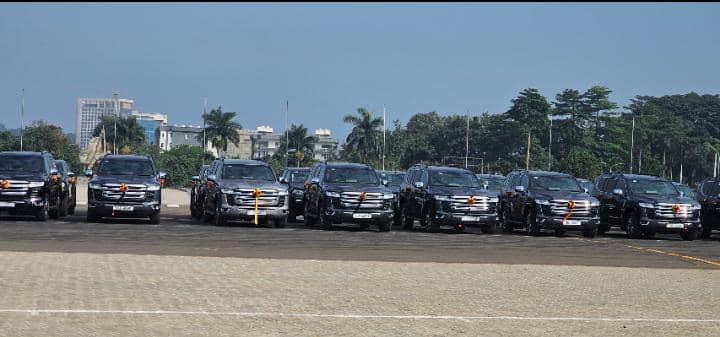Kampala, Uganda | July 16, 2025 — In a move hailed as a major step in integrating cultural institutions into Uganda’s development agenda, the Government has launched the Traditional Leaders Enhancement Programme by distributing brand new cars to all cultural leaders across Uganda.The initiative, spearheaded by the Ministry of Gender, Labour and Social Development, is geared towards empowering cultural leaders to play a more active role in community transformation.
The launch took place at Kololo Independence Grounds, where Vice President Rt. Hon. Jessica Alupo handed over a fleet of new vehicles to all gazetted cultural leaders across the country. The vehicles are expected to enhance the mobility and efficiency of traditional leaders as they mobilize citizens for government programs and address issues at the grassroots.
In her speech, Alupo praised the contribution of traditional institutions in shaping Uganda’s identity, promoting unity, and safeguarding cultural values. She emphasized their importance in maintaining social order, supporting education, and championing peace—especially as the country gears up for the 2026 General Elections.
“These cultural leaders are not just ceremonial figures. They are the heart of our communities and play a big role in driving positive change,” she noted.
Delivering a special message from President Yoweri Kaguta Museveni, the Vice President said the President recognized the historical role played by Uganda’s forefathers in forming strong kingdoms such as Buganda, Bunyoro, Teso, Ankole, and Lango. He credited their leadership in building unity and identity, which remain central to Uganda’s peace and development today.
President Museveni also reaffirmed the government’s continued support for:
Protecting heritage sites
Reviving indigenous languages
Promoting cultural tourism as a national economic driver
He underscored the importance of cultural leaders in popularizing key government initiatives like Parish Development Model (PDM) and Emyooga, adding that the vehicles were not symbolic tokens but vital assets for community engagement.
Hon. Betty Amongi, Minister of Gender, Labour, and Social Development, applauded the President for fulfilling his commitment to cultural institutions and thanked the Vice President for her consistent backing of the ministry. She highlighted how cultural leaders contribute to resolving local disputes, reducing gender-based violence, and improving household livelihoods.
“This programme reaffirms the government’s intent to preserve our culture while enabling traditional leaders to guide socio-economic change in their regions,” Amongi remarked.
The distribution of vehicles signifies a renewed focus on traditional governance systems as a complement to formal government structures. With stronger logistical capacity, cultural leaders are expected to bridge the gap between communities and public service delivery, further rooting development in Uganda’s social fabric.
Culture







